Heading to China? Make sure you pack the right power plug! It may be a small point but there’s nothing worse than landing in a new country and not being able to plug in your phone, camera, or laptop.
In this post, we’re going to break down everything you need to know about power plug types in China — enabling you to travel with peace of mind and stay connected throughout your trip.
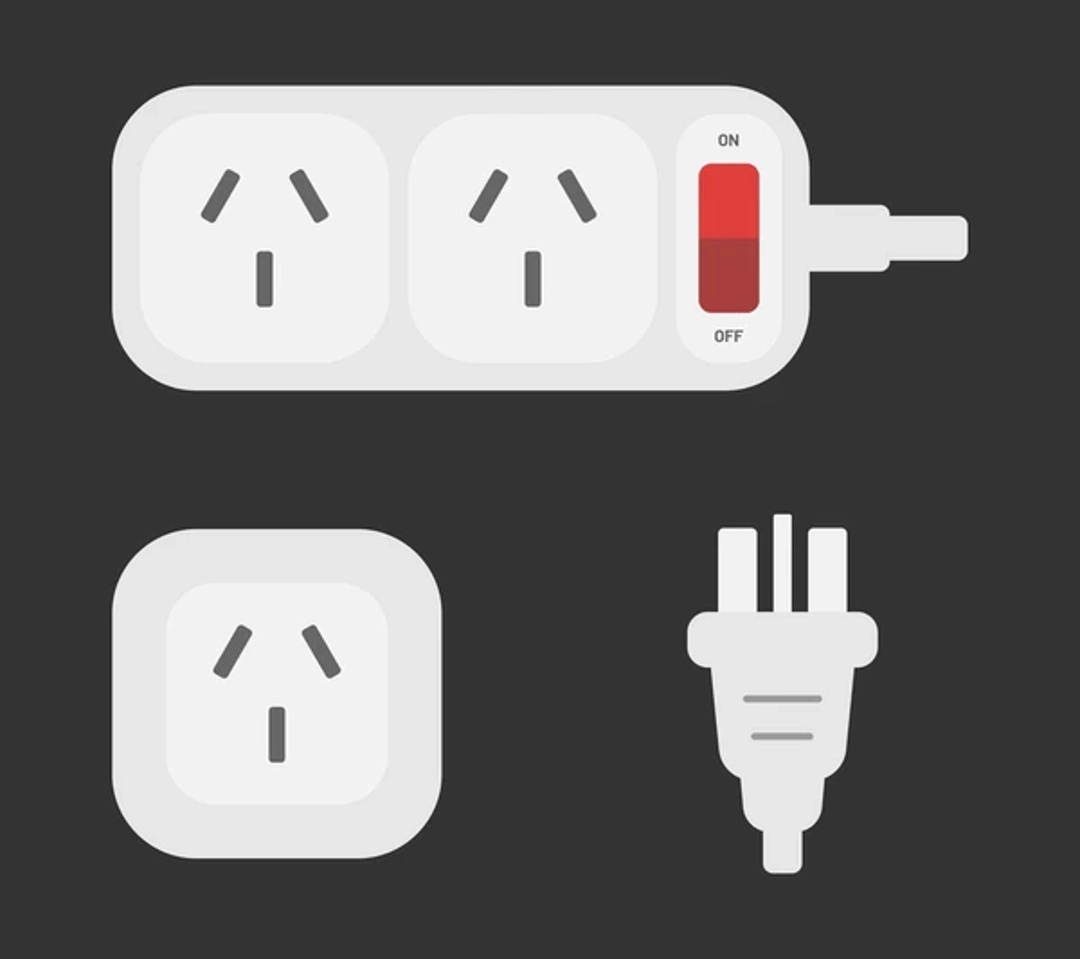
Types of Power Plugs in China
1. Type A
Type A plugs are commonly used in China. These dual-flat-pin plugs are similar to those in North America and Japan, and you can find outlets for them in most hotels in China, since they host international guests.
But, as usual, double-check to see if your electronics can handle the voltage locally.
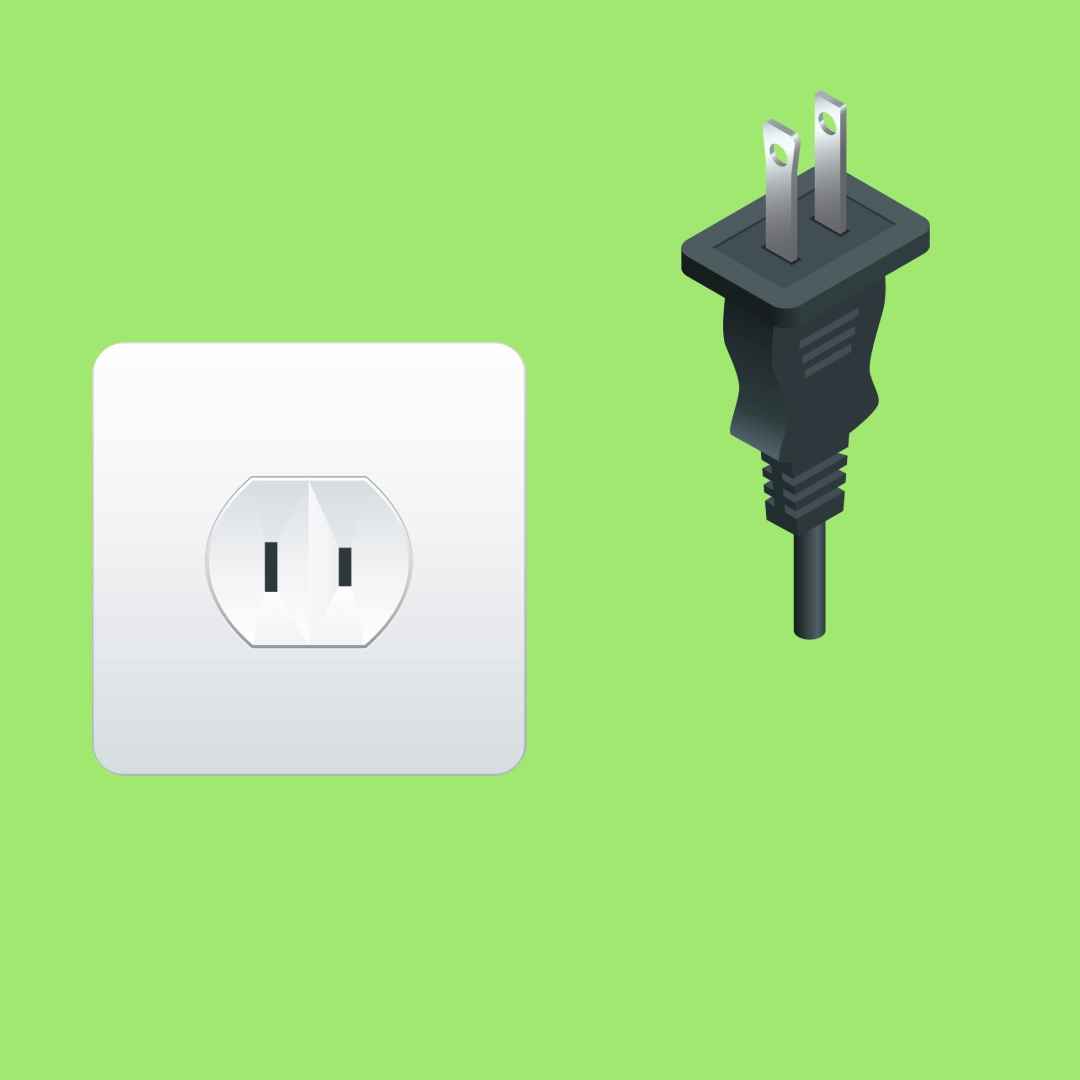
2. Type I
In looking at Type I plugs, you should find two flat, slanted pins, along with a grounding pin that’s often detachable. These are predominantly found in Mainland China, and they’re commonly used in households and businesses.
If your gadgets use this type of plug, you’re all set. Just double-check the voltage to avoid any issues.
3. Type C
You might find Type C plugs in certain countries (Hong Kong and Macau are two examples where they are used). These plugs consist of two round pins and are also common in Europe.
While they aren’t as commonly used on the Mainland, it’s useful to have them in case your electronics require them. And, as always, make sure your electronics can handle the voltage in China.
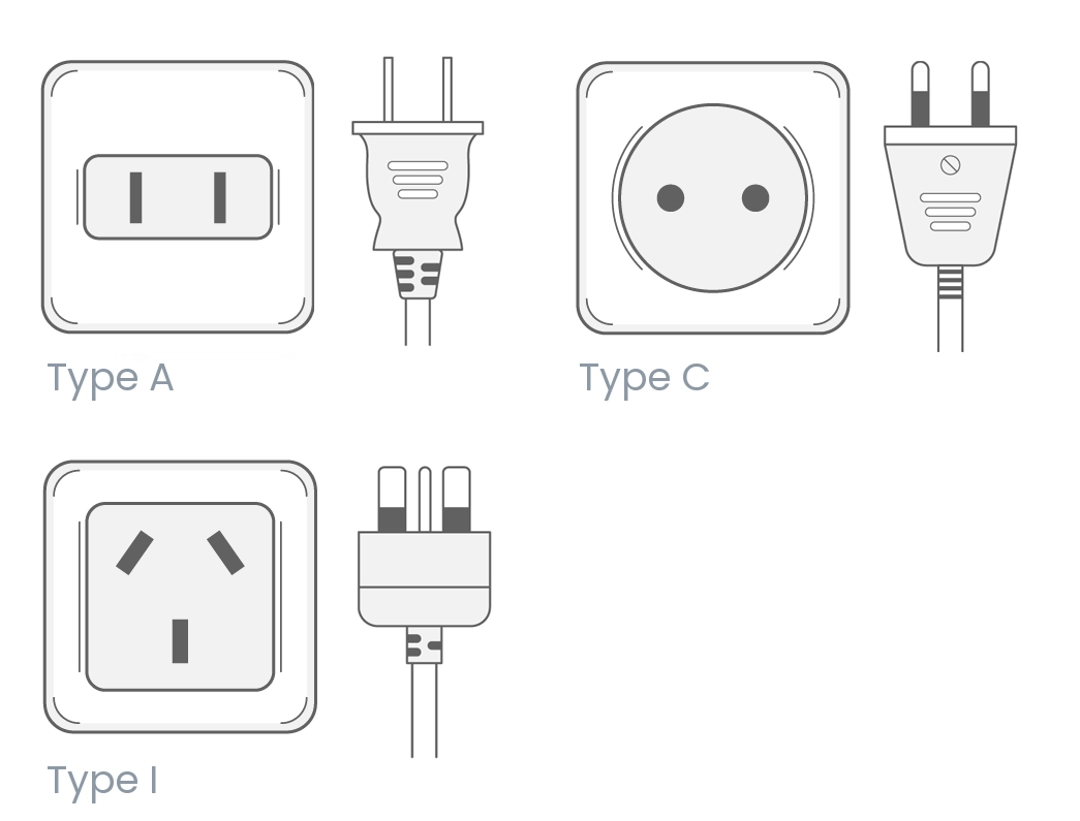
Voltage and Frequency in China
China uses a standard voltage of 220V and frequency of 50Hz. That’s different from what you may be used to at home. Make sure your devices are rated for the correct voltage before you plug them in.
Nearly all newer electronics are designed to handle a range of voltages, but double-check. Older or specialty appliances may require a converter.
Differences with Other Countries/Regions
The table below compares the standard voltage and frequency used in different countries/regions:
Countries/Regions | Voltage | Frequency | Notes |
China | 220V | 50Hz | Standard across mainland China |
Hong Kong | 220V | 50Hz | Voltage is the same, plug type G used (different from China) |
Macau | 220V | 50Hz | Same as Hong Kong, plug type G |
Taiwan | 110V | 60Hz | Voltage differs from China, requires a voltage converter |
United States | 120V | 60Hz | Most devices not directly compatible with China's 220V |
Canada | 120V | 60Hz | Same as the US |
United Kingdom | 230V | 50Hz | Compatible with China's voltage, but plug shape is different |
Australia | 230V | 50Hz | Voltage compatible, plug type I also used in China |
Germany | 230V | 50Hz | Voltage compatible, plug type C needs an adapter in China |
France | 230V | 50Hz | Same as Germany |
Japan | 100V | 50/60Hz | Not compatible with China’s voltage—voltage converter may be needed |
South Korea | 220V | 60Hz | Voltage is the same, slight difference in frequency |
Thailand | 220V | 50Hz | Same as China |
Brazil | 127/220V | 60Hz | Varies by region—check your specific destination |
India | 230V | 50Hz | Compatible with China's system |
Singapore | 230V | 50Hz | Voltage compatible, plug type G differs from China |
Malaysia | 240V | 50Hz | Close enough to be compatible with Chinese voltage |
Which Power Adapter Do You Need?
In China, whether you’ll need an adaptor or not will depend on your home country and the type of plug accompanying your devices. If you’re traveling from the US, the UK, or Europe, it’s likely that your outlet won’t be compatible with the outlets in China.
The simple answer is to pack a universal travel adapter. These are universal because they work with a variety of plug types, and especially useful if you’re visiting more than a single country.
However, be sure it’s compatible with the voltage in China; it is 220V at 50Hz. If you have newer electronics (such as your phone chargers and laptop), they should be dual voltage, but check the label upon your arrival.
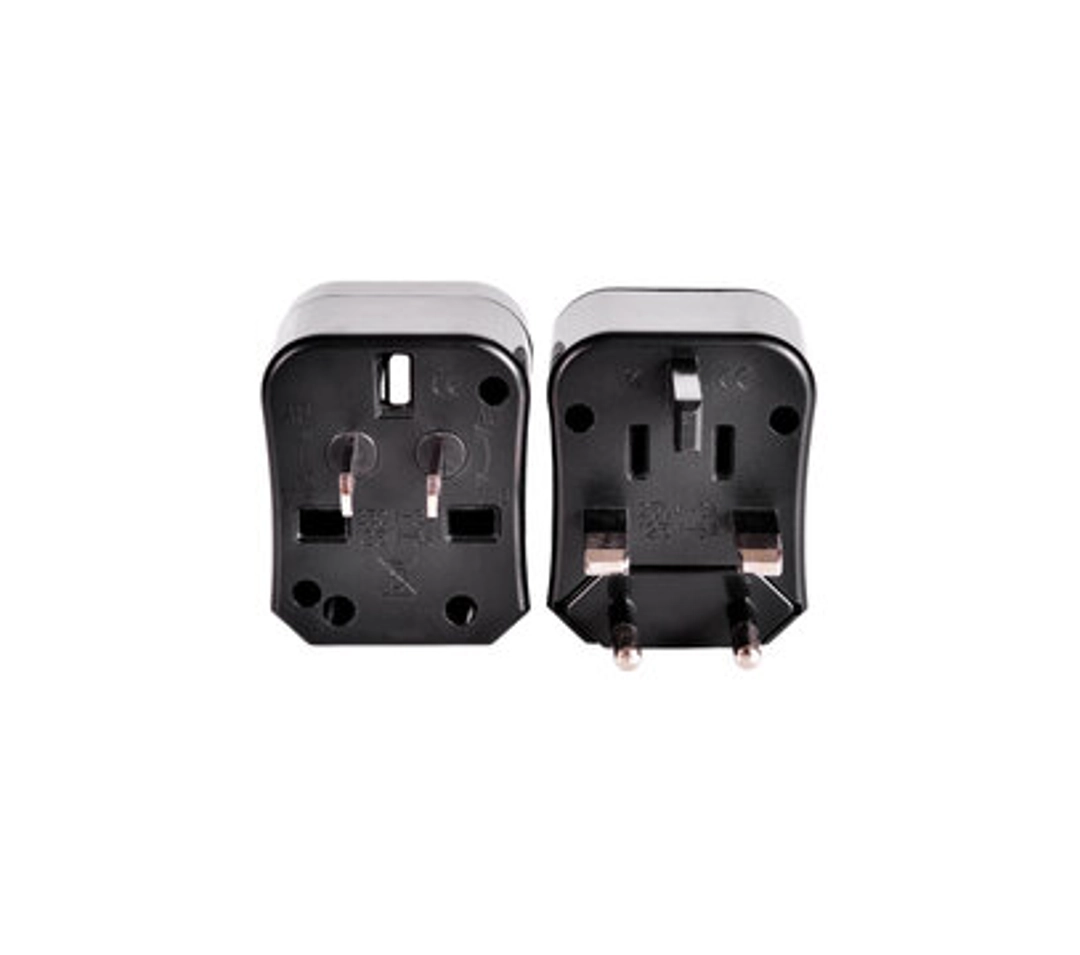
Also, remember: an adapter simply changes the shape of the plug, not the voltage. If you’re using older devices that aren’t 220V-compatible, you may also require a voltage converter. However, in general, most travelers will only need an adapter.
Where to Buy Adapters in China
Power adapters are easy to find in China so you don’t need to worry about bringing one. Most large airports (like Beijing Capital International and Shanghai Pudong) have stores where you can buy one right upon arrival.
They’ll probably be more expensive but it’s a nice solution if you left yours behind.
If you’re wandering the city, stop in a corner store or an electronics store. Stores like 7-Eleven and GOME tend to carry adapters.

Larger hotels may also have them available for rent or purchase at the front desk. Nonetheless, for peace of mind, you may wish to pack your own adapter.
Tips for Charging Your Devices in China
1. Bring a compact power strip
Hotel rooms or hostels might come with limited outlets. A small power strip with several outlets and USB ports will let you connect all your devices at the same time.
2. Carry a power bank
Whether you’re taking a long train or spending the day sightseeing, a full power bank ensures your phone doesn’t run out of battery.
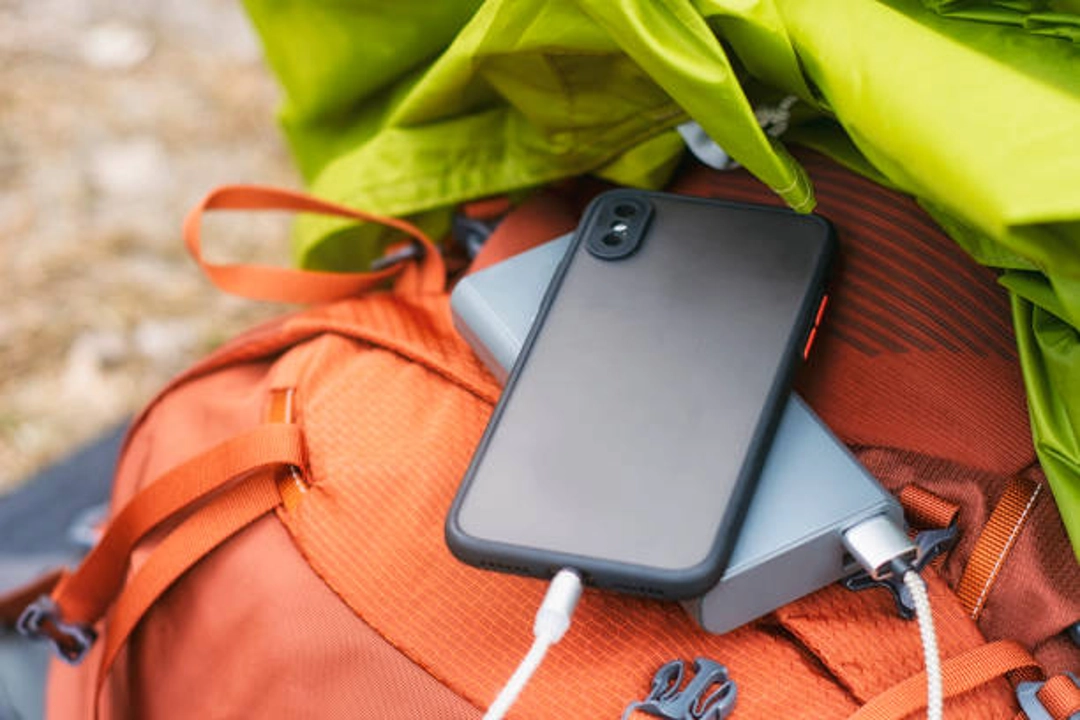
3. Avoid cheap adapters
Use adapters from reliable manufacturers or with good reviews. Low-quality adapters can be shoddy or dangerous.
4. Charge devices at night
If you only have one adapter, charge your most important things overnight to be prepared in the morning.
FAQ
1. Can I bring a portable charger on a plane to China?
Yes, but check with your airline first. Airlines have different rules about what size power banks you can take on board. Most airlines allow you to take power banks in your carry on luggage and prefer them under 100 Wh.
2. What if my device doesn't have a label for voltage?
If you’re not sure about your device’s voltage, you can usually find this information on the manufacturer’s website or search more information on the product model online.
3. Are there any public charging stations in China?
Yes, you can find public charging ports in airports, train stations, coffee shops, and other major cities, but they may be harder to come by in more rural areas.
Conclusion
Sure, finding the correct power adapter for China might not be the most glamorous part of planning your trip — but it’s certainly one of the most important.
But, with the right adapter and some planning, you’ll never have to deal with dead batteries and can remain online your whole trip.
So follow these guidelines, bring the right gear, and spend the rest of your time actually enjoying China—fully powered up!
